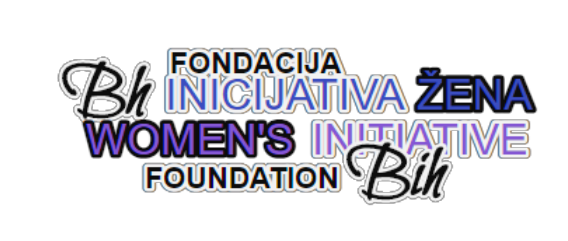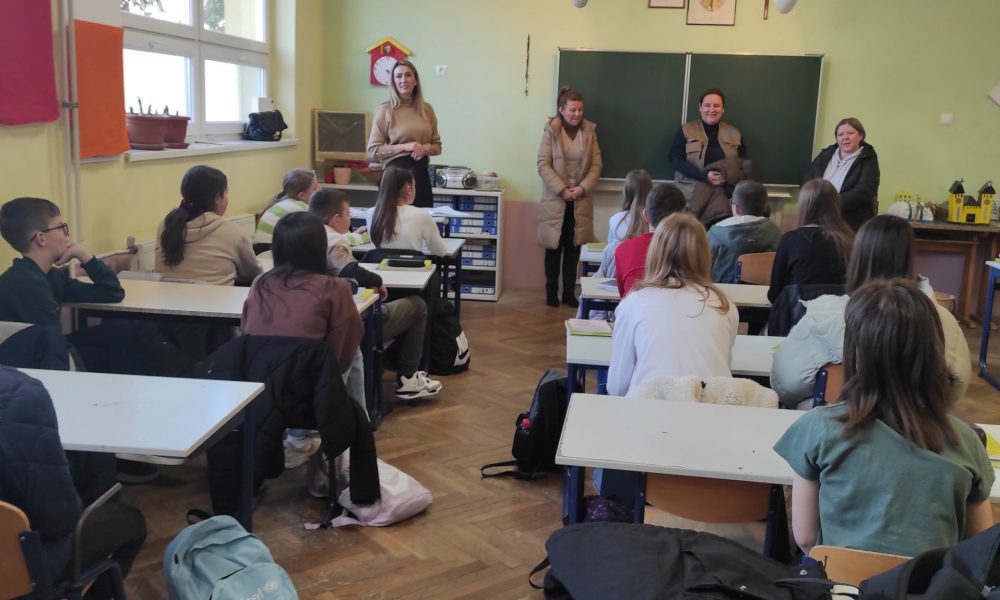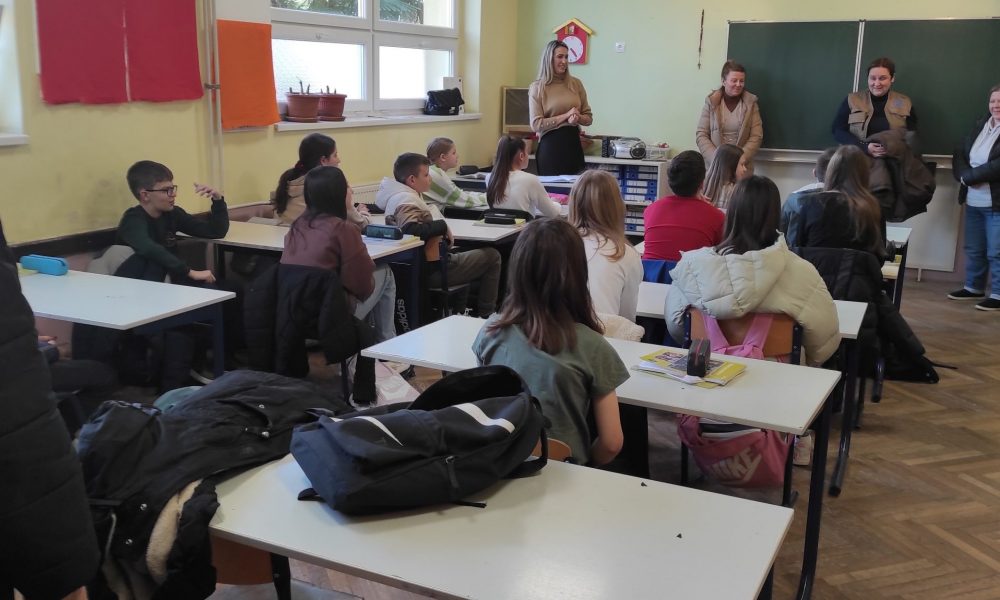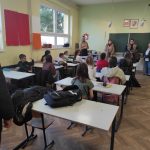Inclusion of Ukrainian Children in Bosnia and Herzegovina’s Education System: Experiences from the Čapljina municipality
As Ukraine continues to suffer from the relentless impacts of war, numerous refugee families have found sanctuary in the Herzegovina-Neretva Canton, particularly in the Čapljina municipality. In this area, 25 families have found a new home, including 46 children, 10 of whom are of school age. These families, grappling with the challenge of continuing their children’s education, have opted for integration into local educational institutions.
In this effort, the office of the UN Refugee Agency (UNHCR) in Bosnia and Herzegovina and the Bosnia and Herzegovina Women’s Initiative Foundation (BHWI) worked closely with local primary schools and the cantonal education ministry. Together, they streamlined the collection and translation of the children’s educational records and offered targeted psychosocial support, alleviating their integration into regular classes.
With the start of the second semester, eight Ukrainian refugee children from families began attending regular classes at two schools in the Čapljina municipality: the Vladimira Pavlovića Primary School in the town of čapljina and the Zvirovići Branch School. This achievement is the result of successful advocacy by UNHCR and BHWI, whose support in collecting and translating necessary documentation, including birth certificates and school records, in close collaboration with the Ministry of Education, Science, Culture, and Sports of the Herzegovina-Neretva Canton, has been instrumental.
The integration of these children into regular classes has been significant not only in providing access to education, but also when it comes to their integration into the local community. The process has allowed the children to acquire new skills, adopt the local language and culture, and forge friendships with their peers, contributing to their psychosocial adaptation.
Boris, a 14-year-old Ukrainian, who along with his six brothers and sisters, found refuge in Bosnia and Herzegovina in 2022, has recently started his education at the Vladimira Pavlovića Primary School. He is very happy and positive with the schooling he is receiving. “I’m doing well in school, and I love going to school,” he shyly remarks. His new classmates have made efforts to facilitate his adjustment, using mobile apps to translate the class schedule into Ukrainian. “We get along great; Boris already understands our language, and when needed, we communicate through gestures and smiles,” they say.
Since their arrival in Bosnia and Herzegovina, the refugee children had been attending virtual classes provided by the Ukrainian Ministry of Education. Thanks to the timely response of the UNHCR and BHWI, the children received laptops and school supplies, enhancing their learning conditions and access to online education in Ukrainian.
This example of integration exemplifies how education and support from local communities are crucial in the process of adaptation and inclusion of refugee children. These efforts not only provide education and psychosocial support, but also build bridges of understanding and friendship between refugee and local children, contributing to the creation of an inclusive and welcoming environment for all.



 Previous Post
Previous Post